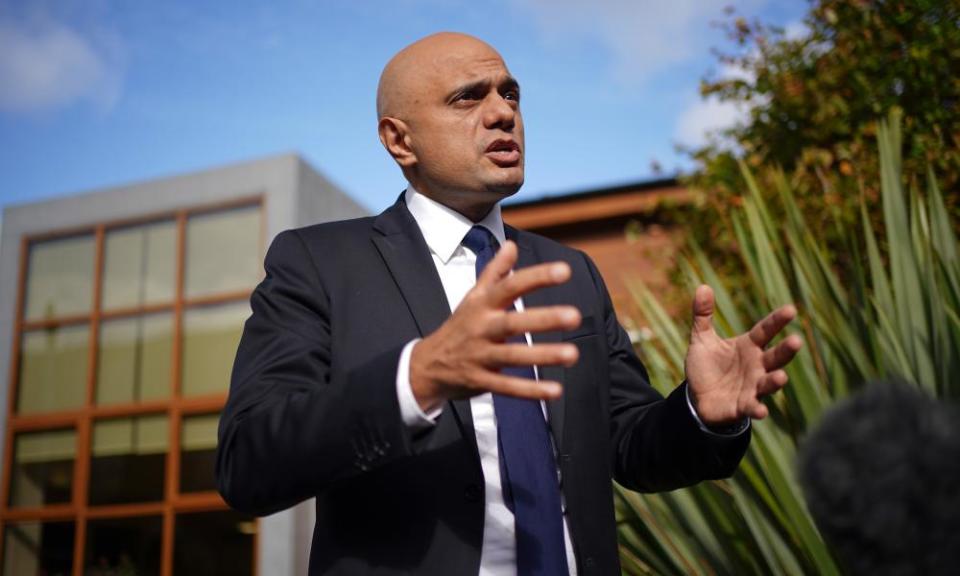The Guardian view on GPs: ministers are playing a vicious game

With breathtaking cynicism, Boris Johnson and Sajid Javid have taken a campaign by the Tory-supporting Daily Mail and Mail on Sunday and turned it into government policy. For months, the newspapers have been demanding that GPs return to seeing more patients face to face. Currently, just under 60% of appointments are in person, compared with 80% before the pandemic, with the rest taking place on the phone or online. The newspapers decided that this isn’t what the public wants. This week, Mr Javid retreated into his Whitehall office to take aim at medics. On Thursday, he failed to turn up at the Royal College of General Practitioners’ conference in Liverpool and issued a series of demands via the media instead.
This is toxic politics. Mr Javid claims to admire family doctors, but his actions indicate the opposite. To call for an immediate return to pre-Covid ways of working, including an end to social distancing in waiting rooms, is irresponsible when the pandemic is still with us. To tell the public that they can “demand” to see a doctor is to undermine professional decision-making processes. To promise league tables, and the naming and shaming of practices that offer too many video appointments, is a transparent attempt to bully a hard-pressed frontline medical service.
Ministers know full well that verbal and physical attacks on NHS staff are increasing. They know too that the underlying problem for the health service is enormous waiting lists, combined with chronic staff shortages (the UK has one of the lowest numbers of doctors per capita in Europe). And they know that public dissatisfaction with an enfeebled and overstretched NHS is one of the most significant political risks they face. That they have responded to this situation by turning on family doctors, in an effort to create a distraction from long-term policy failures, beggars belief.
What makes this even more egregious is that it will undoubtedly make a bad situation worse. In recent years, GPs have been leaving their profession faster than they can be replaced, as the former health secretary Jeremy Hunt acknowledges. In 2015, when he was in charge, the government promised to hire 5,000 more family doctors within five years. Instead, the number has fallen by 4.5% to 28,096 full-time equivalents, at the same time as demand has increased. All the demographic and other factors that are widely understood to place great stress on hospitals and social care providers – an ageing population and rising dementia cases, multiple health issues linked to obesity, high levels of mental illness and distress in young people – increase the burden on GPs also. For too many, the job is unmanageable.
NHS England’s new boss, Amanda Pritchard, calls GPs the NHS’s “front door”. There is no doubt that for an increasing number of people, waiting for someone to open it and admit them is infuriating. Sometimes, these delays carry risks. But for Mr Javid to encourage the public to approach surgeries with an enhanced sense of entitlement, and insist on their right to a particular service, is irresponsible. What makes it even worse is that the shift to a model less focused on in-person consultations, and more reliant on technology, is in line with government policy and was put in place as part of the pandemic response in the first place. It is important to note that Northern Ireland, Scotland and Wales have different systems.
Ministers have agreed to remove some unnecessary tasks, such as the requirement for GPs to write sick notes. Expanding the role of pharmacists in prescribing is a reasonable change that is already under way. But the £250m in promised new funding in no way compensates doctors for the slap in the face that Mr Javid has chosen to deliver after less than four months in the job.

 Yahoo News
Yahoo News 